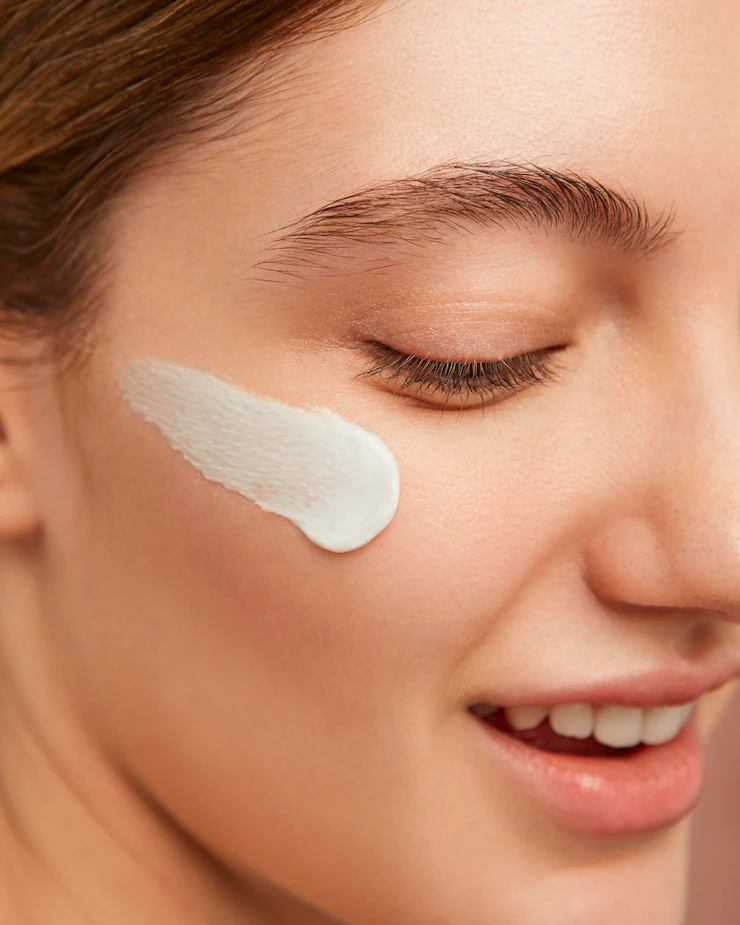- Home
- Ingredients
- Cosmetic Silicone
What is a cosmetic silicone?

A cosmetic silicone is an ingredient that forms a film on your skin that acts as a:
- conditioner
- pearlizer
- moisturizer
- thickener
- dispersant
- skin protectant
Most makeup products contain silicones so that it forms a protective layer on your skin. That layer may contain:
- SPF
- pigments
- emollients
Lip matte and foundation are 2 popular products that contain cosmetic-grade silicone.
Types of silicones used in cosmetics
The most common ones are:
Dimethicone
"Dimethicone is made from dimethyldichlorosilane which is produced by powdered silicon (silicone dioxide) and methyl chloride. Dimethyldichlorosilane is then hydrolyzed to give a hydrolysate of polysiloxanes. In a polymerization reaction with water the polysiloxanes are then polymerized to linear silicone polymers with different chain length (dimethicones)." - Making Cosmetics
Cyclomethicone
"Cyclomethicone is made from dimethyldichlorosilane which is produced by powdered silicon (silicone dioxide) and methyl chloride. Dimethyldichlorosilane is then hydrolyzed to give a hydrolysate mixture of polysiloxanes. In a polymerization reaction with water the polysiloxanes are then polymerized to a cyclic polymer (cyclomethicone) consisting of either 4 siloxane units (cyclotetrasiloxane) or 5 siloxane units (cyclopentasiloxane)." - Making Cosmetics
Polymethylsilsesquioxane
"Methyltrichlorosilane and methanol are used to form methyltrimethoxysilane which is then polymerized by hydrolysis and condensation to form polymethylsilsesquioxane." - Making Cosmetics
What does a cosmetic silicone do?
A silicone has several functions:
- improve skin feel to be less greasy, silky
- thickener
- water-resistant
- allows pigments to be dispersed and not sink or clump
- film-forming ability
- makes hair soft and glossy
Different silicones have slightly different viscosity and generally do not dissolve in water.
Do not be confused with solvents such as Isododecane, Dodecane and Isohexadecane. These are hydrocarbon and do not fall in the silicone category.
How to choose a suitable silicone for my formula?
Depending on what you are making, silicones can affect your final product's viscosity and skin feel.
Deodorants tend to do well with Cyclomethicone while foundations do better with Dimethicone.
Dimethicone has different viscosity level - thick like honey or light as water.
When you use silicone, you are layering your skin with an emollient that protects your skin while keeping it hydrated.
Depending on the formula, you are going to need an emulsifier if your formula calls for oils and water to be combined.
A co-emulsifier is not compulsory but can help with stability.
Where to buy cosmetic silicone?
You can purchase them at:
Do silicones really cause skin problems?
There are no studies to prove that they cause skin problems such as:
- worsen acne-prone skin
- clog pores
- inflamed skin
- contains chemicals
- burning sensation
I wonder who started this trend of Silicones Are Bad 😕!
In fact, people with acne and sensitive skin can use silicone-based cosmetics because they are:
- hypoallergenic
- non-comedogenic
- and create a barrier to protect the skin
Are there alternatives?
Lucky you! 10 years ago, there were not many silicone alternatives around.
I have prepared a list of Silicone Alternatives for you to use as a reference. It's free.
❤️ Share with your friends! ❤️

